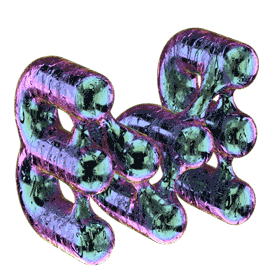
















Bleak Strategies
The exhibition Bleak Strategies by Šimon Sýkora and Adam Smrekovský is the second episode of the two-part exhibition series, where the first exhibiton Rotting Home takes place in parallel with the SPZ gallery. Changes on the city peripheries, whether that is on the outskirts of the metropolis or Šumava, cannot be ignored. The long and powerful fingers of developers and oligarchs are igniting fires on plains that once were public. The authors are not offering nor looking for a solution, their strategy is despair.
Sophisticated sentences about the need for art in today’s world fill endless pages of grant applications. It is impossible to calculate how much it is written about and created on the topic of overcoming all of the crises in which we live through and which alternately overlap and intensify. There are many strategies and proposed reforms, but in reality no one trusts them anymore. Artistic strategies are good for obtaining grants, whereas other strategies are good for the bureaucrats. New playgrounds are being built in the housing projects and smoking is not allowed in the pubs. That’s all for now.
Crises are good for life, they are an opportunity for capital and an environment for people. Basically, we cannot make a mistake. Our strategy will always be blind. Esotericism, financial consulting, self-improvement courses, survival courses, the choice of politically and ethically conscious diets, short time supportive engagements for the needy, recycling…
Most people have such problems with themselves that thinking about change at the political level is merely just another form of escapism.
And then of course there are drugs. Forbidden joy coming from the city outskirts. Thanks to drugs, we can defend anything that does not involve their use. “better than taking drugs with your friends.” And then, of course, there is fascism. Political dystopia coming from the periphery. Thanks to fascism, we can defend anything that does not see fascism as its main goal but only glances in that direction.
Our reputation and the reputation of the West and its democracy have been momentarily saved by the war in Ukraine. The bombed-out cities show us that it could be worse. Same as with the flow of refugees from Africa, they have long been saving the reputation of our prosperity. We have nothing to complain about. Children in Africa are hungry. We are on the better side of the global human selection.
Neither Adam Smrekovský nor Šimon Sýkora have the ambition with their art to contribute to the education, enlightenment, or perhaps even to change through art. With his visual creations, Smrekovský manifests this frustration, but the proposed change is so psychotic that it cannot be taken seriously. The pointless individual revolutions and the ritual of the housing projects only show us that we know about that crap. In Sýkora’s paintings, the characters stand nowhere else than at the end of the world. The destruction will not be purifying, however it might be the last one.
There is nothing to analyze about capitalism, it is showing its cards pretty openly. If the word periphery still made some sense, we could say that Adam and Simon are on the periphery. But there would have to be a center against which the periphery will define itself. But there is no such center, the development project of the housing estate, the recreational area in Šumava and the dried out landscape with dying forests democratize the doom to the traditionally understanding groups of people and destroy the rooted understanding of space. The centers of power are in luxury bunkers that none of us will ever get a chance to look in.
The survival strategy of the system and of the individuals returns to the biological level. Art can hardly play a significant role in this process, even if we sometimes delude ourselves. However creation itself is a sign of determination to survive. Simon and Adam’s strategic despair does not call anyone to action nor does it open people‘s eyes. There is no reason for that. There is no need to survive such complex questions.
Pavel Šplíchal



